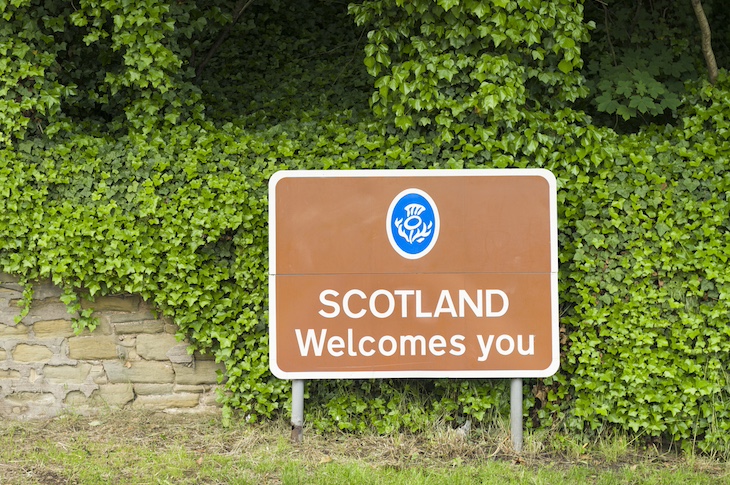The last thing Labour needs right now, after the last hundred days of scandal and mishap, is a row over immigration. So the party will not have been pleased this morning to see reports in the Scottish press suggesting that the Home Secretary, Yvette Cooper, is considering introducing a separate Scottish immigration visa, which would help Scotland counter its falling birth rate.
This is not the first time the idea of a Scottish visa has surfaced. It has long been campaigned for by the SNP, with the nationalist MP Stephen Gethins tabling an amendment this week to allow Scotland to set up its own visa regime.
The UK government certainly seems minded to make it easier to migrate to Scotland, by whatever means
Labour’s deputy leader, Jackie Baillie, also suggested in June that there would be ‘discussions’ over a Scottish visa, or ‘MacVisa’ if Labour won the general election, which of course it did. And in 2016, the then justice secretary Michael Gove suggested that it would be for ‘Scotland to decide’ its immigration levels after Brexit.
Still, the Home Office has now moved with unusual alacrity to squash the idea that a separate Scottish visa is on the way. It presumably fears it would be seen as an invitation to mass migration by the backdoor at a time when even Keir Starmer has been saying that the numbers entering the country are too high.
But visa or no, the UK government certainly seems minded to make it easier to migrate to Scotland, by whatever means.
This could involve some kind of points system, a relaxation of the earnings limits, or some version of the Scottish executive’s Fresh Talent initiative of 2005, under which graduates were permitted to remain in Scotland for two years after graduation. That was wound up by Labour in 2008, partly because of fears that it might become an uncontrolled route to the UK, especially for dependants.
There is clearly a need for more young workers in Scotland to help pay for the ageing population. Scotland’s birth rate fell to its lowest recorded level last year, and deaths outnumbered births by 19,000. The nationalists have long been calling for a ‘Live in Scotland’ visa to support migration to rural and island communities.
But the problem in a unitary state is how to prevent migrants coming to Scotland only to hop across the border. One solution would be to identify Scottish migrants by their tax code and ban them from seeking employment in the south. But apart from being unfair, it is not clear that this would be workable in practice. Many might simply disappear into Britain’s burgeoning black economy.
It would also raise awkward questions about citizenship. Would Scottish migrants, and their dependents, be denied the right to apply for citizenship after five years? Would such migrants be denied promotions in companies which operate both in Scotland and in England? That could look like discrimination.
A cynic might say that Labour’s apparent enthusiasm for increased migration to Scotland is precisely so it can provide a new ‘safe route’ for migration to the UK as a whole. No Labour politicians have ever suggested as much, and they insist that such talk is a Trumpian conspiracy theory. But that won’t stop people thinking that Labour is soft on immigration at the very least. The image of migrants crossing over the Scottish border is ideal fuel for Nigel Farage and Reform’s campaign efforts.
But it is not the lack of a Scottish visa that underlies Scotland’s migration deficit. A record 750,000 net migrants came to Britain in 2022, but only around 20,000 reached Scotland. The real problem may simply be that the SNP government, after 17 years in power, has failed to make Scotland a sufficiently attractive place to come and work.








Comments